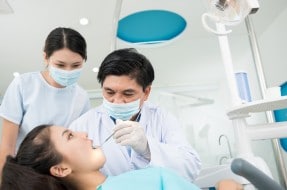Call now on0800 051 8069
Can overuse of mouthwash increase the risks of suffering mouth cancer?
-
A summary of both proven and unproven factors which may increase the risks of mouth cancer.
I recently read an article about a European Study which suggested that those using alcohol-based mouthwashes more than three times a day had an increased risk of mouth and throat cancer. However, other research has advised that, as this is not considered normal use, the reliability of this study is reduced and there is no credible evidence that mouthwash causes cancer.
Proven Risk Factors
Mouth cancer can affect any individual and the British Dental Health Foundation states that around 91% of all diagnoses are linked to lifestyle. Therefore, in order to reduce the chances of mouth cancer, people should consider their lifestyle. The following risk factors are known to increase the risks of suffering mouth cancer.
– Tobacco use and this includes the chewing of tobacco and smokeless tobacco and second hand smoke.
– Excessive drinking of alcohol
– The Human papillomavirus (HPV)
– Poor diet
Unproven Risk Factors
– Mouthwash, as discussed above whilst some studies have shown a link (where there is excessive use), other research clearly places doubt on this.
– Dentures, it has been suggested that poorly fitting dentures that cause long-term irritation of the mouth lining are a point of concern regarding oral cancer risk. However, this link has not been confirmed in several studies.
Dental Appointments
As well as people making the appropriate lifestyle changes, it is also important that people attend regular dental appointments. By attending regular dental appointments this will enable a dentist to carry out a thorough mouth examination. As a matter of course a dentist has to carry out a visual examination and check for the early signs of mouth cancer as part of a routine dental appointment. The earlier the diagnosis is made and treatment received, the better chance of a good prognosis.
Dental experts have also emphasised that those who do not have their own teeth and who wear dentures, should still attend regular dental appointments to ensure that they have a thorough mouth examination.
Our Experience
The Dental Negligence Team is very experienced in pursuing cases where there has been a failure by the dentist to detect mouth cancer and/or a failure to refer the patient for specialist treatment, particularly where proven risk factors are present.
If you or a family member feel you have suffered from negligent dental treatment in relation to mouth cancer, please contact us and we will be happy to discuss your potential claim and advise on whether we can assist you in bringing a claim.







